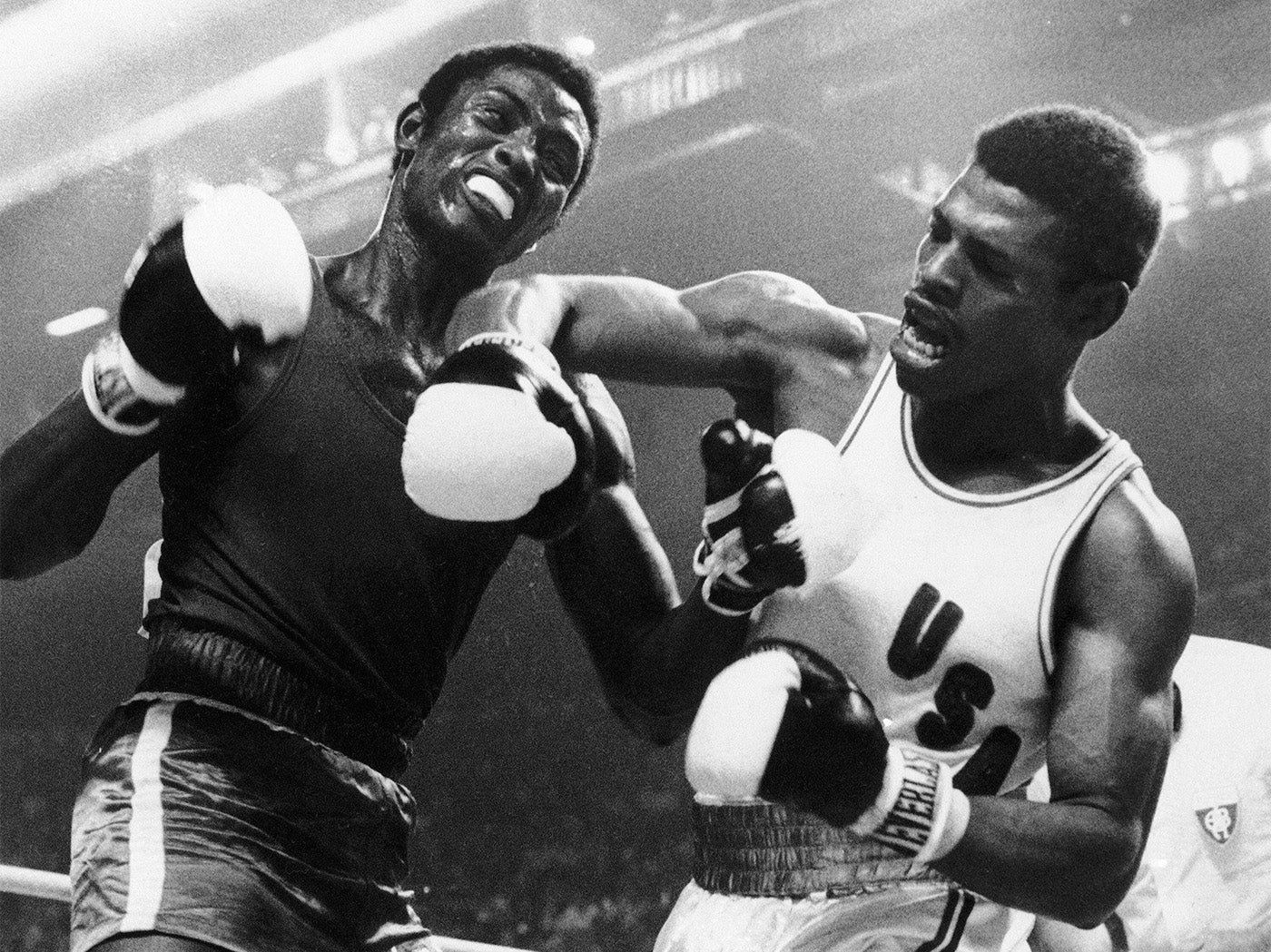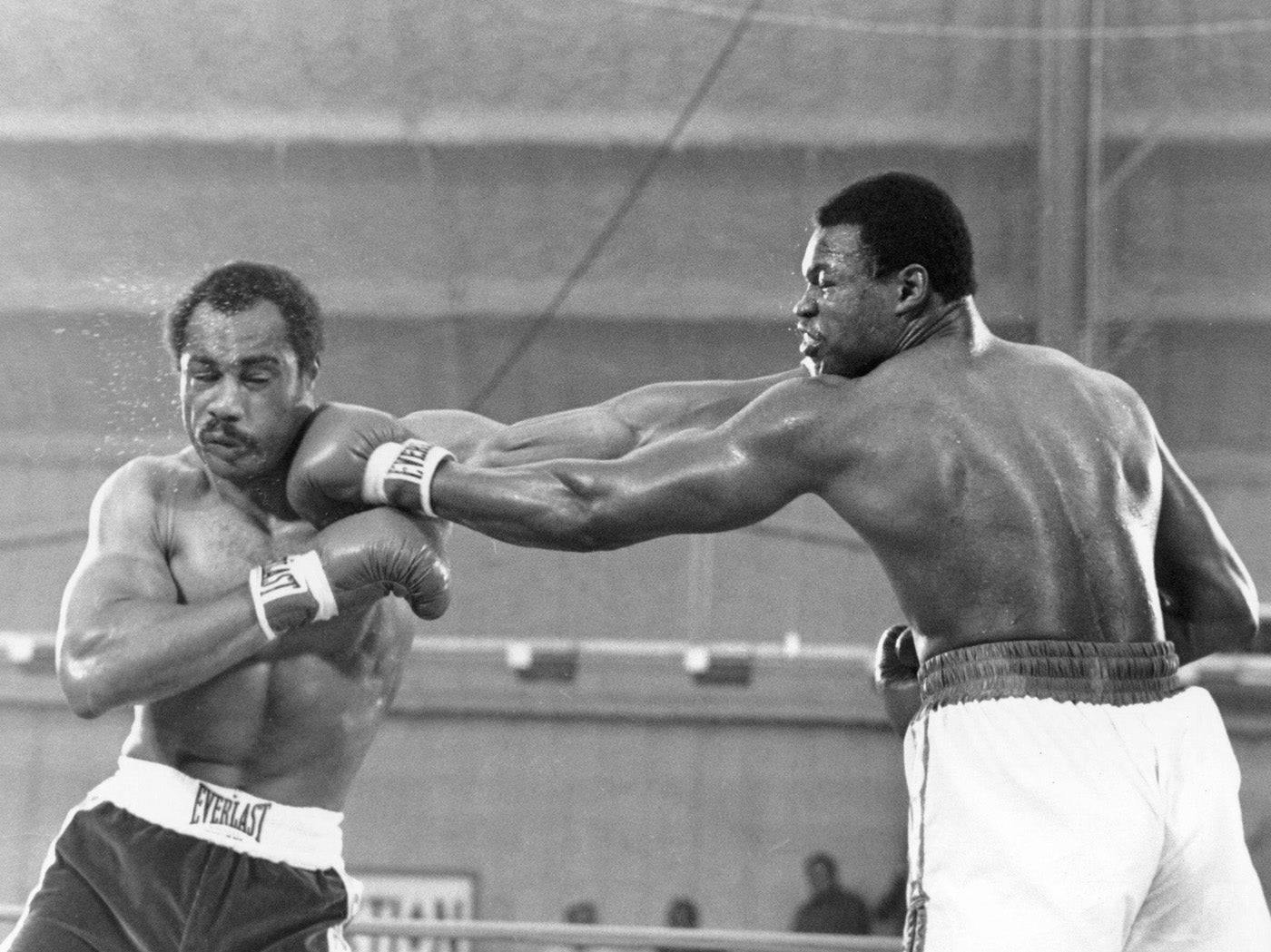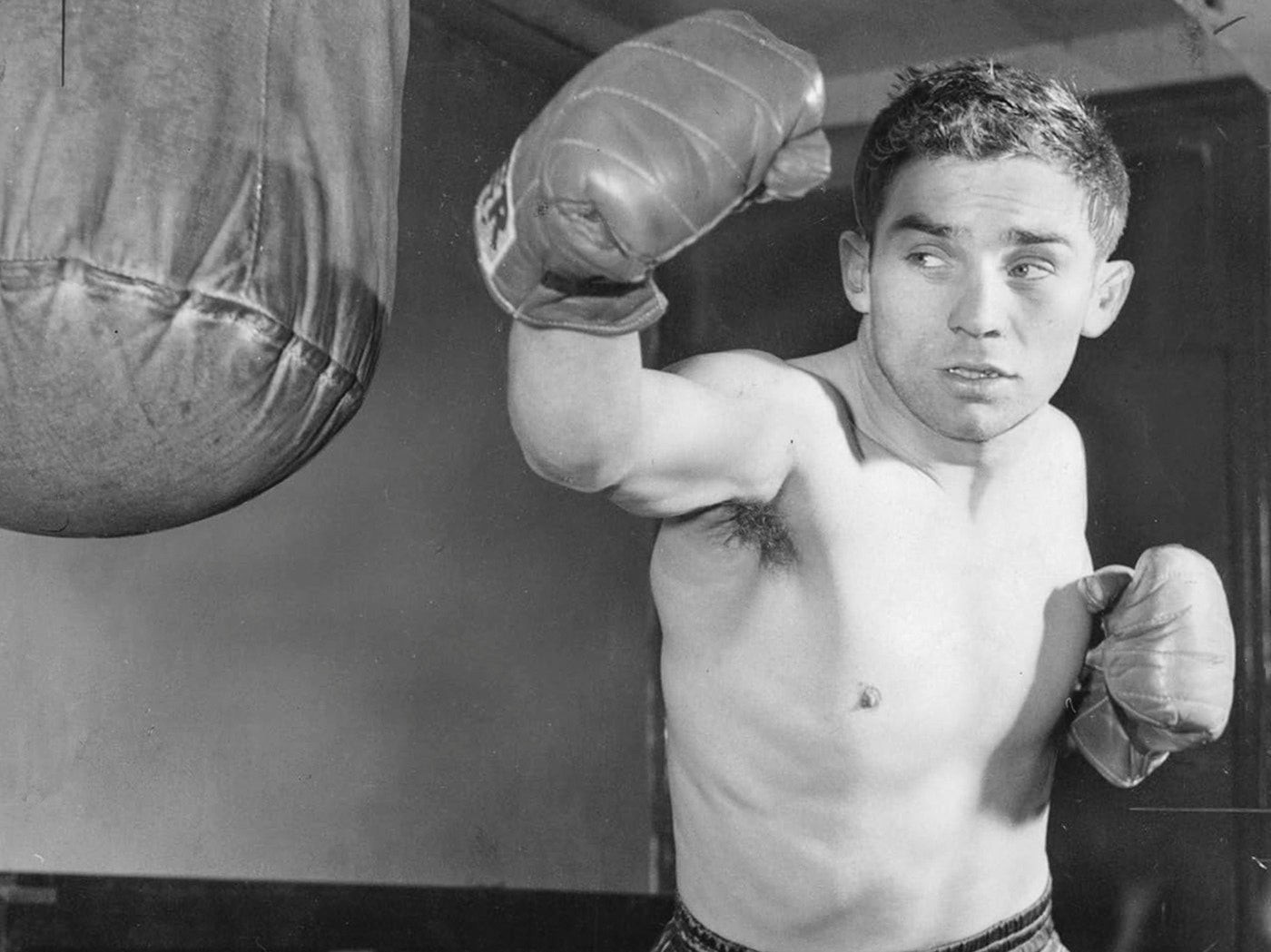‘Opportunity knocks only once. You never know if you'll get another opportunity. I know a lot of people think I'm dumb. Well, at least I ain't no educated fool.’
Leon Spinks
'BVB writer, Paul Zanon is currently working with prisoners at HMP Thameside using the power of sports writing to help them develop into wordsmiths. We are delighted to support his efforts by donating a prize to the winner of a competition he runs with the prisoners and we will be publishing the winning piece on our website.'
There is a habit in society to never speak ill of the dead, that in death all sins are forgotten and that the truth is told by the facts and figures alone. Yet, this is a disservice to those so white-washed.
Researching the life and career of Leon Spinks brought this fact to fore. There were articles curated about his life and career, but they were dry and matter of fact, bereft of humanity, portraying him as a lucky journeyman who once beat Muhammad Ali, but failed to sustain a career at that height.
However, some articles told a different, grittier, more human story, where it wasn’t his talent in question, but his lifestyle and self-discipline instead. The facts bear out the truth that Spinks, was indeed very talented. As an amateur, he fought at light-heavyweight, notching an incredible 177 wins, with only seven defeats and a stunning 133 knockouts. Not to mention he won three consecutive national championships between 1974-76, with the fistic cherry on the cake being gold at the summer Olympics in Montreal, Canada, where he overcame the best that Europe and Latin America had on offer.

All the while, Spinks was enlisted and served in the United States Marine Corp (USMC), fighting as part of the USMC Boxing Team. However, following his Olympic victory, Spinks saw his future as a paid fighter, and said goodbye to the Marine Corp, to pave the way for a professional boxing career.
Spinks debut was in Las Vegas on 15 January 1977 against Bob Smith, stopping the southpaw in the fifth session. As with many fighters, Spinks’ opposition was gradually built up as he disposed of a further four nondescript opponents in the next five months, all by knockout. Leon’s last two contests of 1977 resulted in a draw against respected Minnesotan, Scott LeDoux and a close points victory over Italian heavyweight champion, Alfio Righetti, who was 27-0 at the time and would go on to lose only once more in his 39-fight career. In 12 months, Spinks had racked up a record of six wins and one draw.
Since beating George Foreman in 1974, in what was considered to be one of the biggest upsets in heavyweight boxing at the time, Muhammad Ali had ruled the world championship roost for almost three and a half years. Having defended his titles 10 times since the Rumble in the Jungle, against the likes of Ken Norton, Earnie Shavers and Joe Frazier, on 15 February 1978, Ali was looking for an opponent of limited talent and experience for his eleventh straight defence. Leon Spinks was considered to be easy pickings and hence, his name filtered to the top of the list. For Ali, now past his prime, this was to be a fight to keep his career buoyant and for Spinks, in only his eight professional bout, it was the chance of a lifetime , that he grasped with both gloves.
Ali’s people jazzed up the PR to make it two gold medallists battling it out and how a seven-fight novice could do the unthinkable in exactly 13 months to the day since his debut. As the old expression goes – ‘don’t tempt fate.’
An underprepared and possibly overconfident Ali, stepped into the ring only to leave after 15 rounds with a battered face and bruised pride, as Spinks won by split decision. Ali would go on to say, ‘Leon is a good man….I was a little off guard. I make no excuses, but he won.’ This victory would set the record for the shortest professional career track to become world champion.

Unfortunately for Spinks, without the constraint of military life, he took a more relaxed attitude to the training and discipline that had, until this point, supported his natural talent – like water and sunlight allows a flowers to bloom. He would find himself enjoying a party lifestyle consisting of drink, drugs and women, relying on his talent to bring victory in the ring. The impact of this lifestyle would grow with each success, bringing with it new people to tag onto his entourage, who were drawn into the trappings of his glamour and money within boxing, not to mention his penchant for sharing in excess.

From being a minor contender to becoming undisputed world heavyweight champion overnight, Leon Spinks was now a headline personality and with it came the opportunity to expand and enhance his thriving party lifestyle. One journalist described what followed as, ‘A once in a lifetime bender.’ His birthday celebrations alone were a 10 day marathon of partying, drinks and drugs. Talking about this period in later life, Spinks would say, ‘All I cared about was cocaine, weed, cars and women. And I enjoyed it.’
Boxing became more of a hobby to Spinks, taking a backseat to the discipline and training, which had earned him the trappings of success in the first place. His entourage certainly didn’t help matters and in fact, it could be said that partying had become his new profession and as such he worked hard at it. Consequently, his commitment and desire to fight, faded.
Ali found it hard to swallow defeat to such a novice of little stature and demanded a rematch. Intent on getting Spinks in the ring, he dangled a $3.75 million purse in front of the champion, which Leon duly accepted, albeit, the WBC stripped Spinks of their belt due to rejecting their mandated defence against Ken Norton, who was the their No.1 challenger.
With more than money at stake for Ali this time round, The Greatest had a decent training camp, whilst Spinks turned up a sorry version of himself. There were even reports that Spinks’ wife found him surrounded by his entourage, drunk in his hotel room an hour before his rematch with Ali.
A mere 212 days after his victory over Ali, on 15 September 1978, Spinks staggered into the ring at the New Orleans Superdome and to the amazement of those who knew his lifestyle, managed to last the 15-round duration, narrowly losing on points to Ali. This contest consequently set up two further records – The shortest reign as world heavyweight champion and the first time a fighter had become a three-time world champion, in Muhammad Ali.
While Ali’s career would continue its well documented trajectory as ‘The Greatest,’ Spinks would never achieve such heights again, despite challenging for world honours twice more. A third-round stoppage against Larry Holmes for his WBC strap followed in 1981 and despite dropping down to the newly founded cruiserweight division, he was smashed by Dwight Muhammad Qawi in six rounds in 1986. The day Spinks won the world title in 1978 is the day his life started to slide out of control uncontrollably and tragically.
And in this moment of defeat, Spinks would return to his hotel room alone, the entourage instantly vanishing, to confirm the fact that ‘no one loves a loser.’ Not that this would stop Spinks. A party for one would continue and through this, his boxing talent started to desert him, wilting as a flower starved of sunlight and water.
Thus, a twilight period of journeymen bouts would follow, with occasional chances to challenge for championships, squandered in the ring. He did have success as a professional wrestler, reaching the heights of world champion, which made him the second person to gain world titles in both disciplines of boxing and wrestling, since Primo Carnera.
Unfortunately, Spinks would go on to suffer bankruptcy, neurological deficits due to staying in the square ring too long, before finally succumbing to cancer. He perished on 5 February 2021, at the age of 67.
Leon Spinks’ life and talent was far richer than the sanitised historical accounts could ever show or even hint at. As he explained it, without an apology or excuse, ‘All of a sudden, I had something. I tried to do too much. I was crazy. I didn’t care about nothing.’
My closing thought in comparing the varied sources can be summarised thusly: ‘Record and accept a man for his truth – talent and faults alike – for that is his life; the life he chose and lived. So, to deny either is to deny him.’






